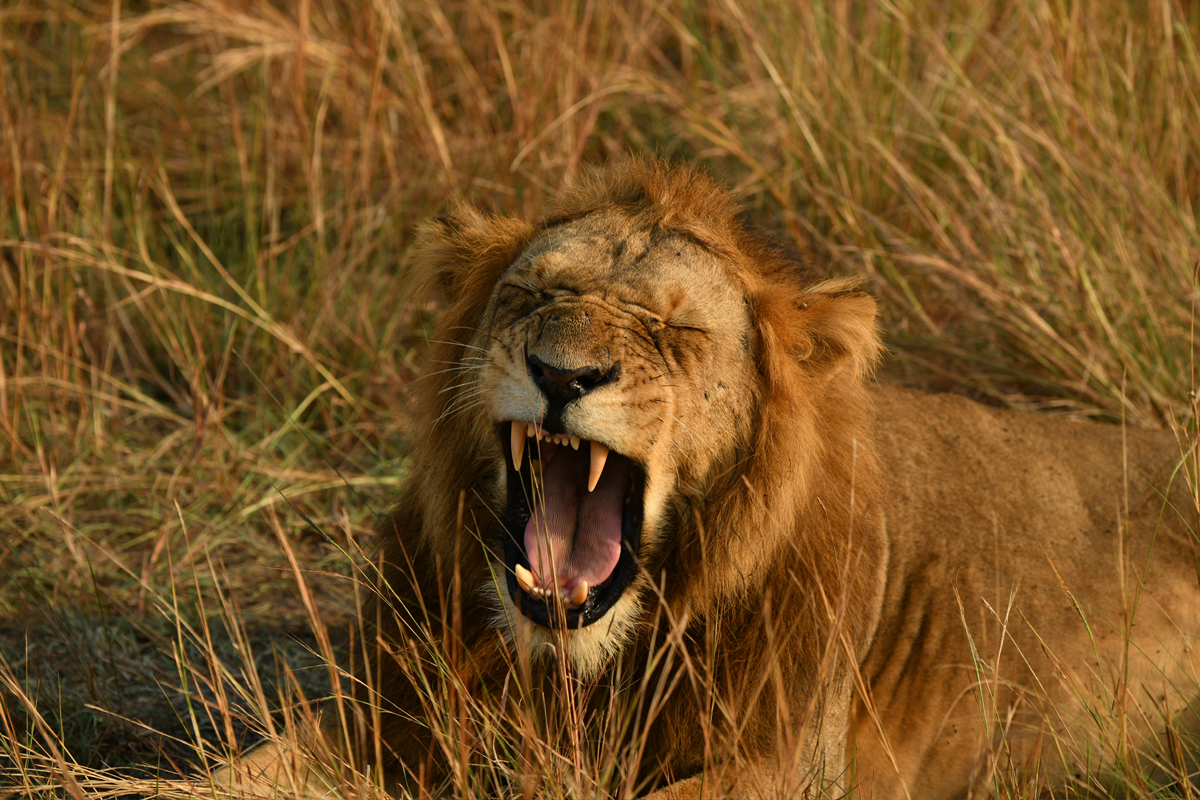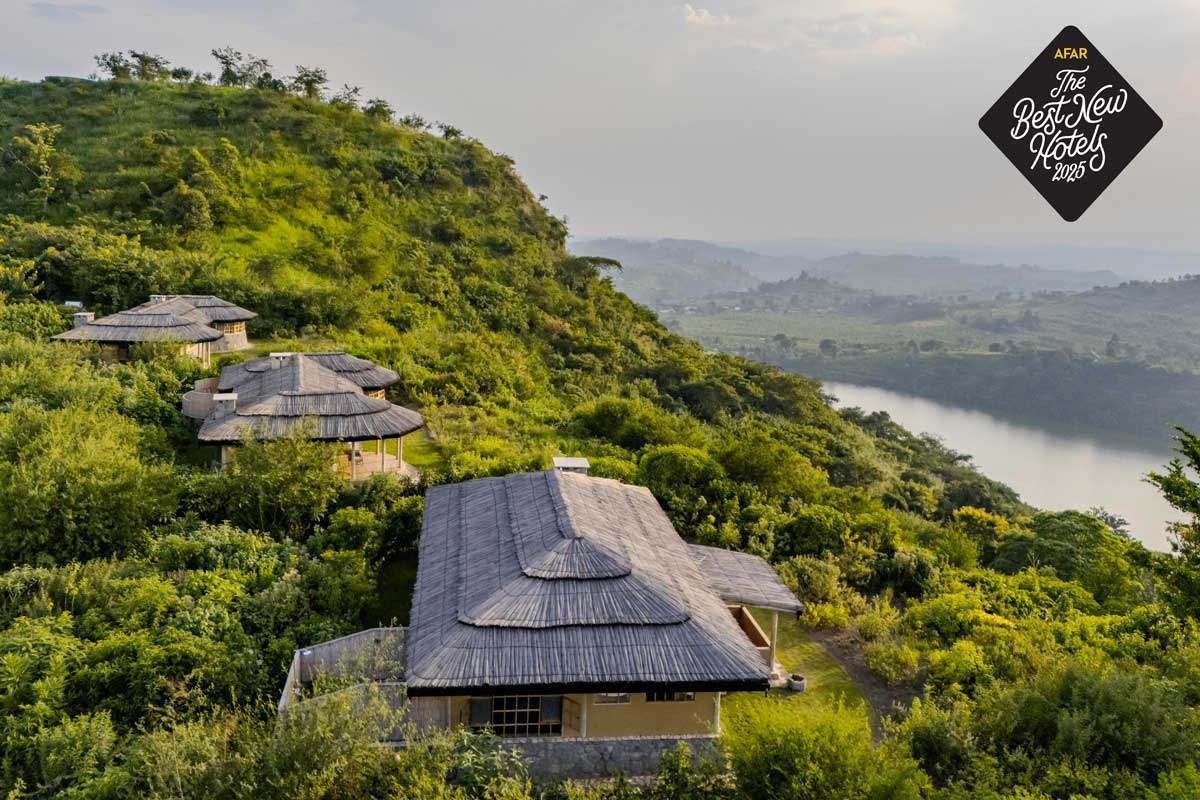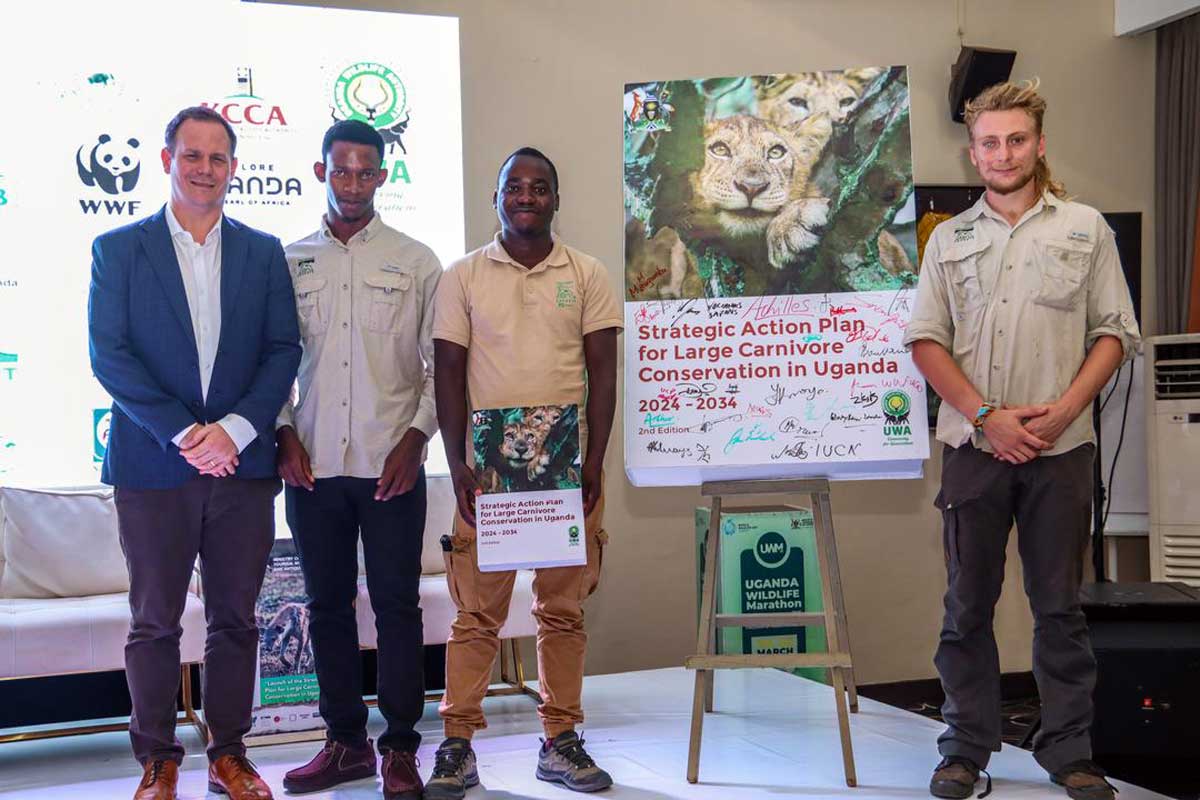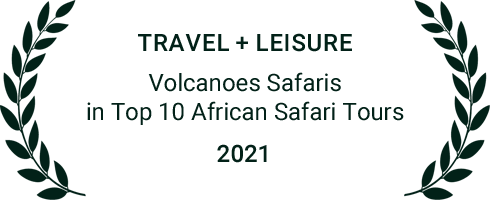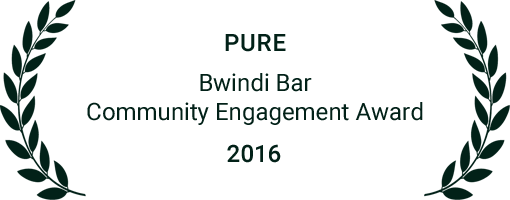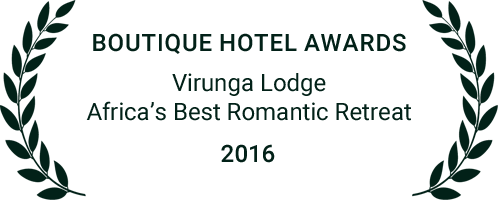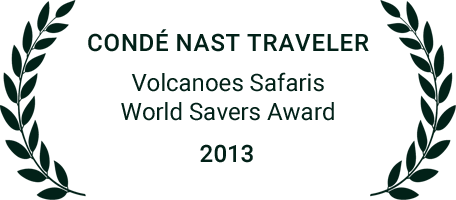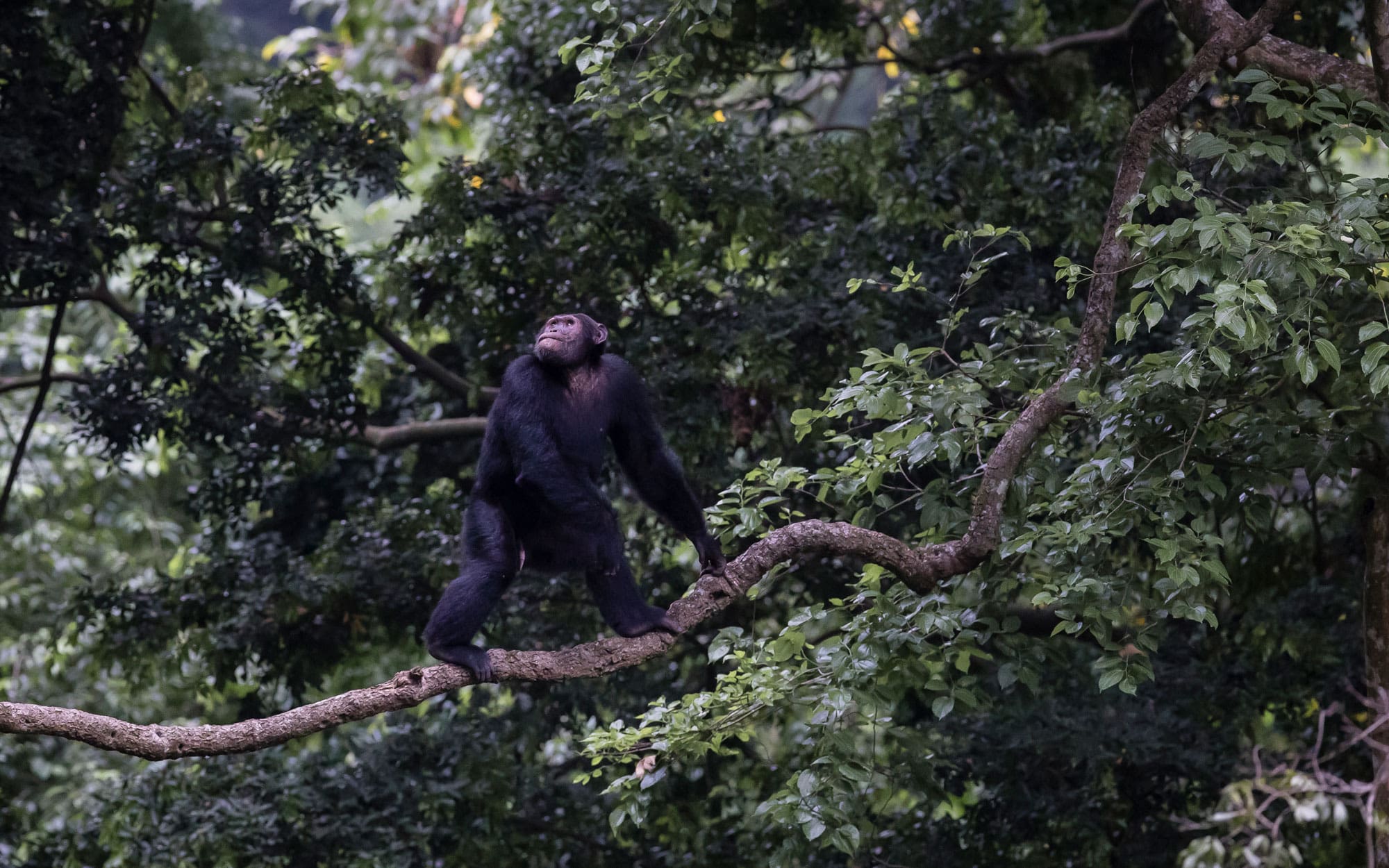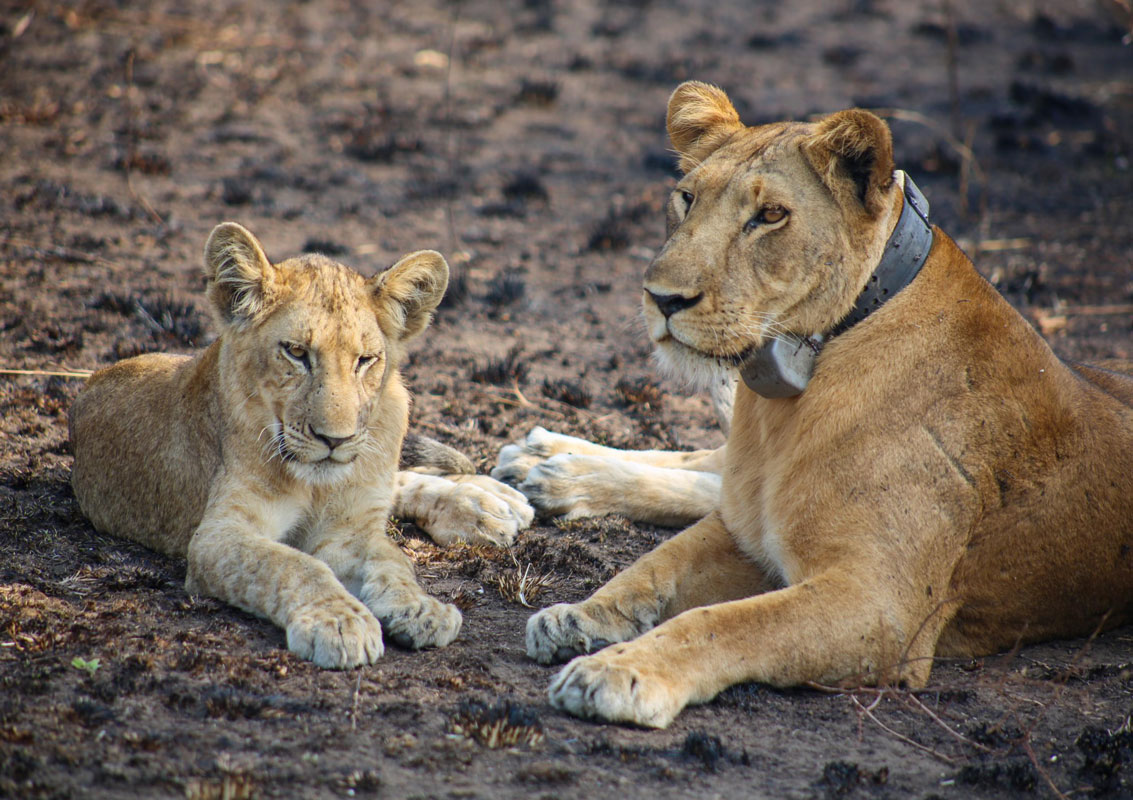
Photo: Lion cub and Larissa taken in QECA by Andrew Kato
Background
Since 2022, Volcanoes Safaris Partnership Trust (VSPT) has been working in partnership with the Uganda Wildlife Authority (UWA) to implement an annual African lion and large carnivore survey in Queen Elizabeth Conservation Area (QECA), Uganda.
The project objectives are:
1) to establish strong scientific estimates of a unique tree-climbing population of African lions residing in the QECA;
2) to build the scientific capacity, provide expertise and support UWA in carnivore monitoring in Uganda;
3) to improve the livelihoods of local people living around QECA; and
4) to collaborate with UWA and other conservation stakeholders to mitigate the human-wildlife conflict and assist in wildlife incidences.
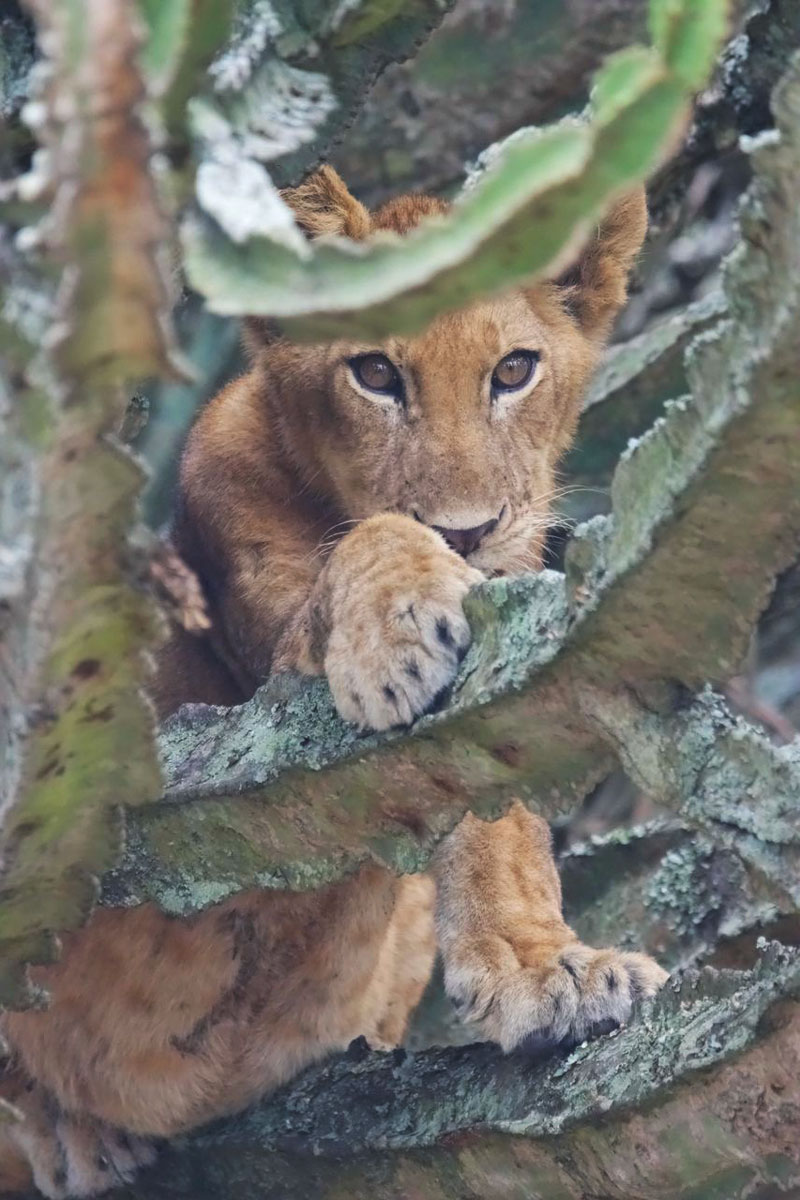
Photo: Lion cub taken in QECA by Kevin James
Leopard and Hyena Survey - April to July 2024
62 camera traps were deployed across multiple regions of the park for approximately 100 days to monitor species movements and identify new individuals. Specific deployments included 14 traps in the Kasenyi Plains, 13 in Mweya, 7 in the Craters, 21 in Ishasha, and 8 in Kyambura Gorge. The pins on the maps below indicate the exact locations of the camera traps.
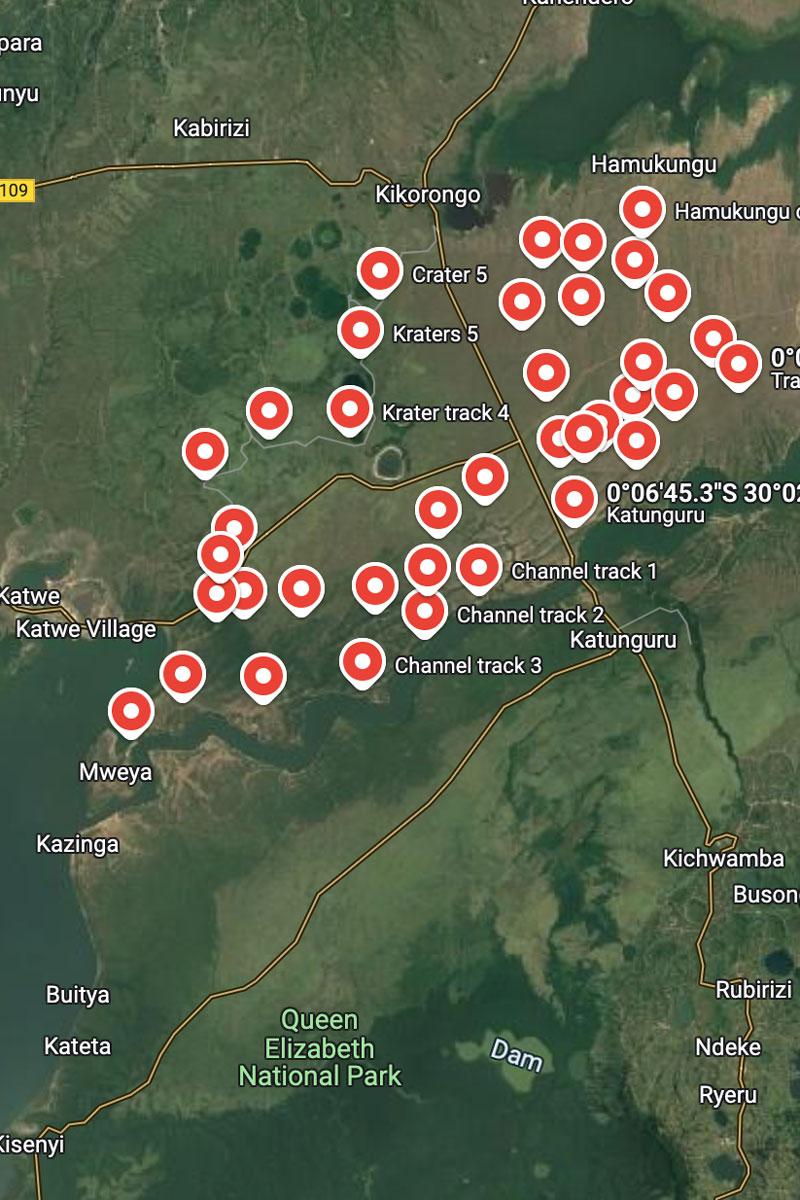
Map of northern Queen Elizabeth National Park with camera trap positions.
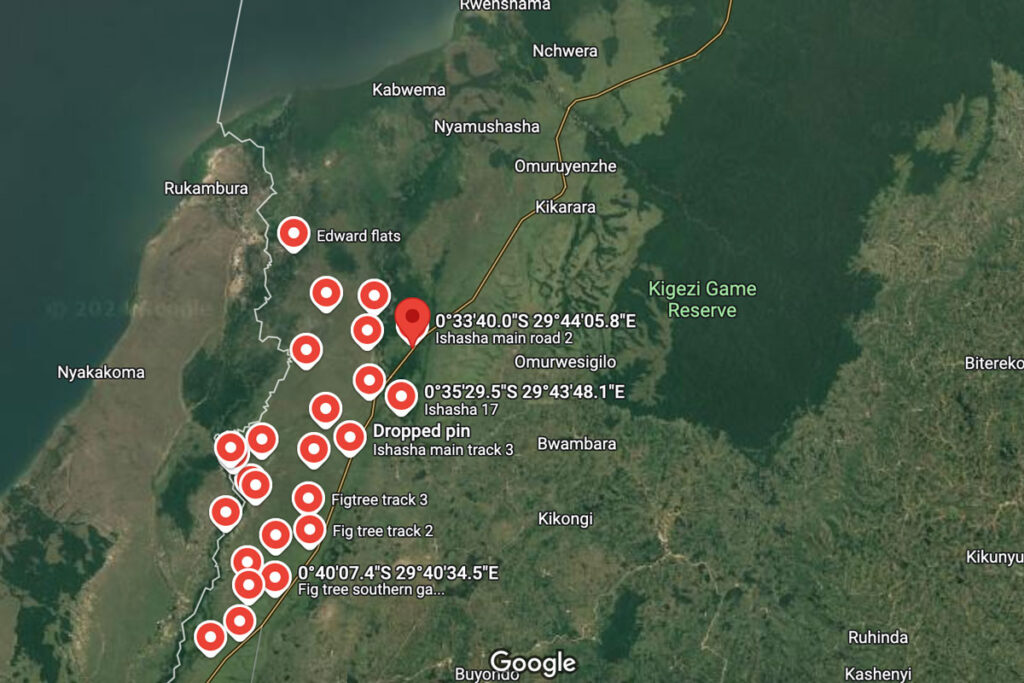
Map of southern Queen Elizabeth National Park with camera trap positions.
The camera traps were positioned in the same locations as previous census efforts within QECA to allow for data comparison. The team is currently processing the data for lion, leopard, and hyena. Other species captured during the census include the side-striped jackal, serval cat, giant pangolin, chimpanzee, and honey badger.
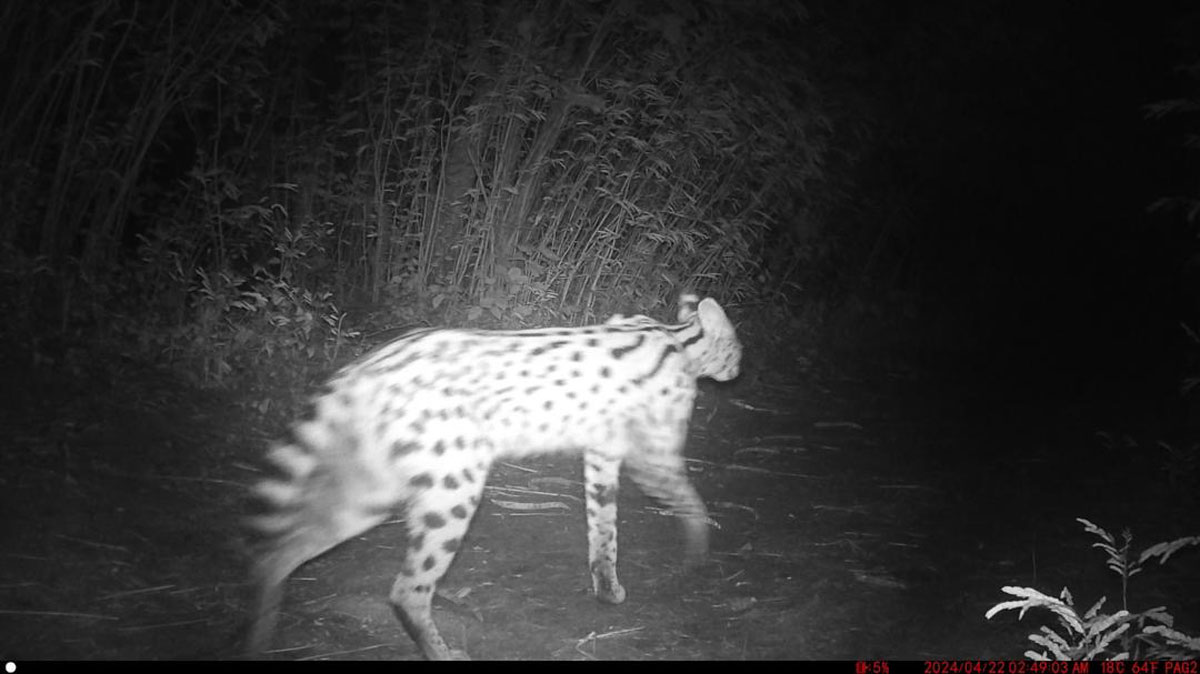
Serval cat on a camera trap at Kyambura.
Field Observation
From January to July, the team has been regularly monitoring lions in QECA, making several key observations:
- Overall, the QECA lion population has remained stable throughout 2024, with prides concentrated in two main areas: the Kasenyi Plains in the northern sector and the Ishasha region in the southern sector, which borders Virunga National Park in the DRC.
- Since January 2024, there have been no reported incidents of lion poaching within QECA.
- In February, Alex Braczkowski, the field team, and photographer Luke Oches documented Jacob and Tibu, two resident lions, successfully swimming across the Kazinga Channel, a piece of water notorious for its crocodile and hippopotamus populations. The swim was recorded to be approximately 1 mile long, which has not before been seen in the species. Read more here.
- Of the 8 cubs born to lionesses Larissa, Flor, and Kiana in 2023, 6 have survived beyond their first year. The cubs are reported to be healthy and strong.
- Larissa, Flor, and Kiana have also given birth to a new litter of 6 cubs. As the mortality rate for cubs under one year is 50%, the team will closely monitor their development.
- A new male lion has been spotted in Ishasha. Named "Papa Aibu" (meaning "Shy Papa"), he crossed over from the DRC. In August, Mustafa Nsubuga from Virunga National Park observed him mating with Julia and Hope, two resident lionesses. We hope to see cubs soon
- The 2024 lion population survey is scheduled to begin on 15th August.
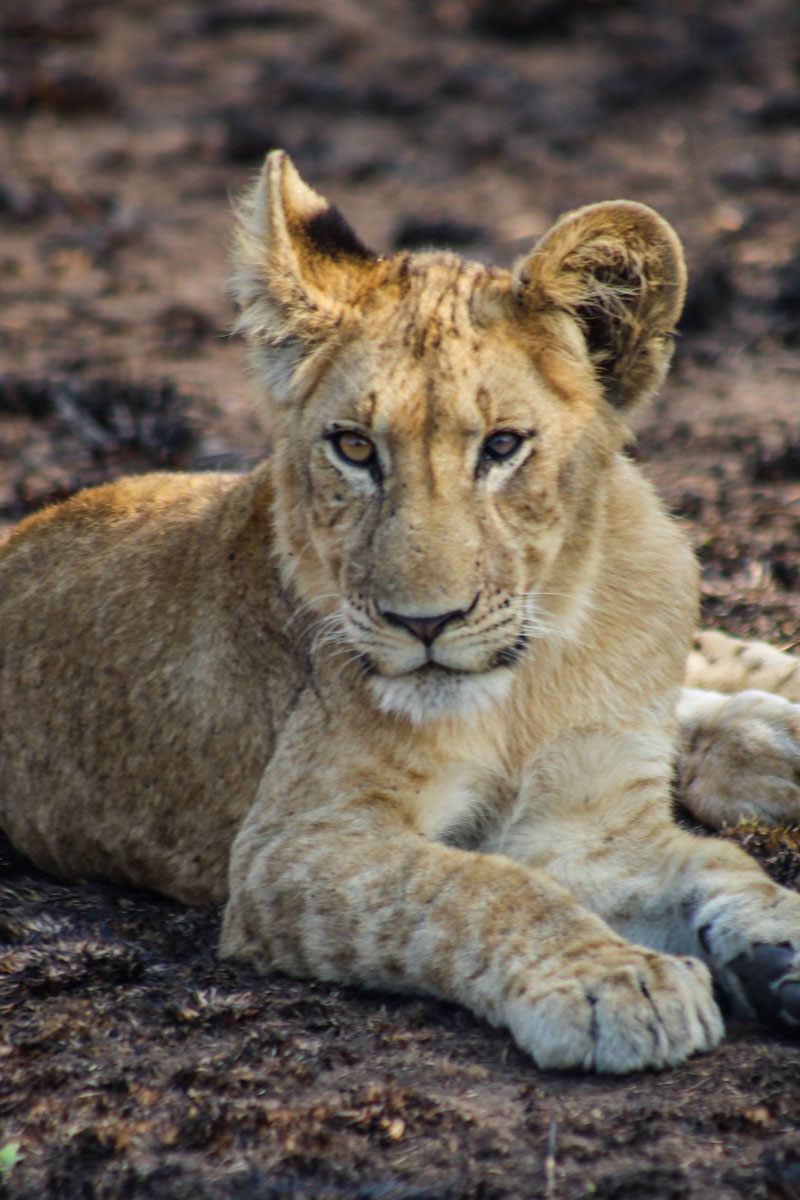
Photo: Lion cub taken in QECA by Andrew Kato
Capacity Building
The Kyambura Lion Monitoring team is working to build the scientific capacity, provide expertise and support Uganda Wildlife Authority (UWA) in carnivore monitoring in Uganda. Over the past seven months, UWA rangers Uwimana Marriette, Tadeo Tumwesige, and Tumuhimbise Owen have been actively involved in daily monitoring into the park. VSPT Field coordinators Bosco Atukwatse and Orin Cornille have been providing these rangers with specialised training in lion tracking, identification, data collection and analysis.
Johnson Muhereza, a VSPT guide and regular trainee on the project, has made great progress. He now assists with lion identification by photographing the animals and operating the drone during fieldwork. Additionally, Johnson has learnt mechanical skills, a necessary skill for maintaining the team vehicle.
Andrew Kato, a VSPT wildlife guide and enthusiastic photographer, frequently joins the team to capture the stunning landscapes of QECA. Immaculate Nabasa and Immaculate Natukunda have also closely worked with Orin and Bosco to learn about the project.
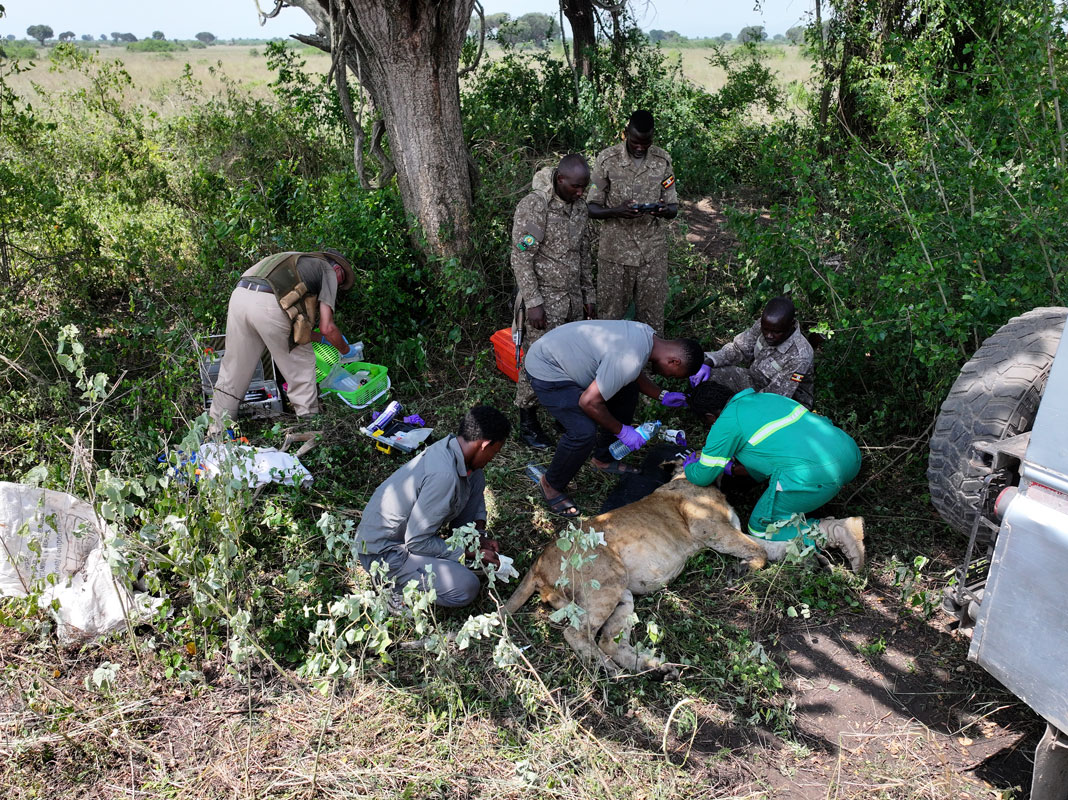
Photo: Kyambura Lion team, Uganda Carnivore Program and UWA attending to a lion.
Human-wildlife conflict response and veterinary support
In collaboration with UWA and other conservation stakeholders, the team has responded to eight human-wildlife conflict incidents from January to July. These incidents primarily involved lions that had strayed into local communities. The team acted swiftly to corral the animals away from the villages, ensuring the safety of both the wildlife and the local residents.
The team has also assisted UWA veterinarians, Dr. Eric Enyel and Dr. Ludwig Siefert, with over 15 emergency treatments, the majority of which involved the removal of wire snares.
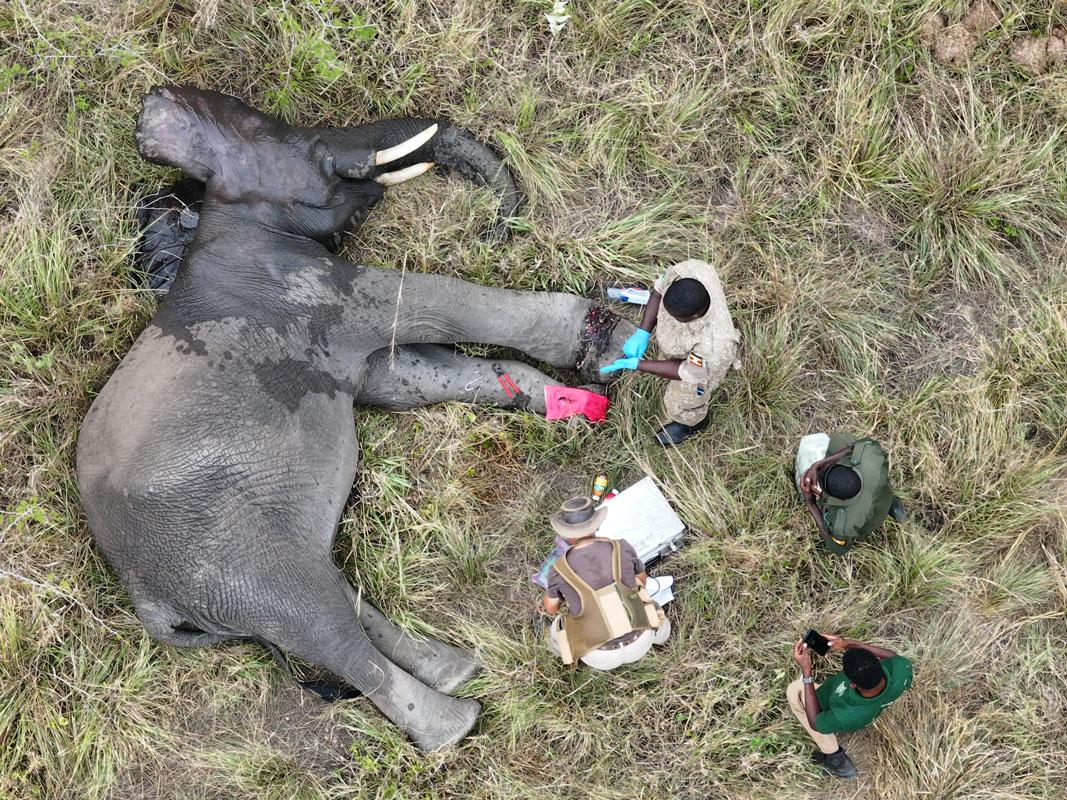
Photo: Kyambura Lion team, Uganda Carnivore Program and UWA attending to a snared elephant.
Prepared by members from the Kyambura Lion Project Team - Bosco Atukwatse, Orin Cornille, Kevin James, Alex Braczkowski, Esme Stewart and Simon Kaweesi.
